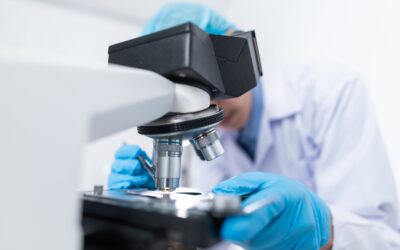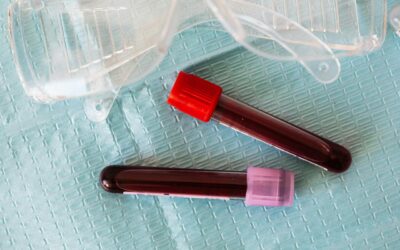Table of Contents
Hyperthyroidism is a condition in which the thyroid gland, located in the neck, produces an excess of thyroid hormones. These hormones play a crucial role in regulating metabolism, energy levels, and overall bodily functions. When the thyroid becomes overactive, it can lead to various health complications. Understanding hyperthyroidism and its treatment options is vital for anyone affected by this condition. If you or a loved one is experiencing symptoms, seeking expert care from the Best Hyperthyroidism Doctor in Tilaknagar, Mumbai, is essential. At Tilaknagar Specialty Clinic, Dr. Rohit Barnabas offers top-tier diagnosis and treatment to help you manage hyperthyroidism effectively.
What is Hyperthyroidism?
The thyroid gland releases two primary hormones—thyroxine (T4) and triiodothyronine (T3)—that regulate the body’s metabolic rate. In hyperthyroidism, the thyroid gland produces an excessive amount of these hormones, leading to a speed-up in the body’s metabolism and causing a range of symptoms. This condition can affect anyone, but it is more commonly diagnosed in women, particularly those between the ages of 20 and 40.
Causes of Hyperthyroidism
Several factors can contribute to the development of hyperthyroidism. The most common cause is Graves’ disease, an autoimmune disorder where the immune system attacks the thyroid, causing it to become overactive. Other causes include:
- Thyroid Nodules: These are growths in the thyroid gland that can sometimes produce excessive amounts of thyroid hormones, leading to hyperthyroidism.
- Thyroiditis: Inflammation of the thyroid gland can result in the release of excess thyroid hormones into the bloodstream.
- Excessive Iodine Intake: Iodine is necessary for the production of thyroid hormones. However, consuming excessive amounts of iodine can lead to an overproduction of these hormones.
- Pituitary Tumors: In rare cases, tumours in the pituitary gland can affect thyroid hormone production, leading to hyperthyroidism.
- Medications: Certain medications like amiodarone, which is used to treat heart conditions, can also induce hyperthyroidism.
Symptoms of Hyperthyroidism
The symptoms of hyperthyroidism can vary from person to person, and in many cases, they develop gradually. Common symptoms include:
- Unexplained weight loss despite normal or increased appetite.
- Rapid heartbeat or palpitations, especially at rest.
- Increased sweating and heat intolerance.
- Fatigue and weakness.
- Tremors or shaking, especially in the hands.
- Nervousness, anxiety, or irritability.
- Insomnia or difficulty sleeping.
- Frequent bowel movements or diarrhoea.
- Menstrual irregularities, such as lighter or less frequent periods.
- Enlarged thyroid gland (goitre) visible at the neck.
If you experience any of these symptoms, it’s important to consult a healthcare provider immediately. Early detection and treatment of hyperthyroidism can prevent complications such as heart disease, osteoporosis, and in rare cases, a life-threatening condition known as a thyroid storm.
Diagnosing Hyperthyroidism
To diagnose hyperthyroidism, a doctor will typically begin with a physical exam and a detailed review of symptoms. They may perform several tests, including:
- Blood Tests: These tests measure the levels of thyroid hormones (T3 and T4) and thyroid-stimulating hormone (TSH). In hyperthyroidism, TSH levels will typically be low, while T3 and T4 will be elevated.
- Radioactive Iodine Uptake Test: This test measures how much iodine your thyroid absorbs. A high uptake may indicate that the thyroid is overactive.
- Thyroid Ultrasound: This imaging test helps identify any nodules or enlargement in the thyroid gland.
- CT or MRI Scan: In certain cases, doctors may recommend imaging tests to rule out pituitary tumours.
Treatment Options for Hyperthyroidism
There are several effective treatment options for hyperthyroidism, depending on the underlying cause and severity of the condition. The goal of treatment is to bring thyroid hormone levels back to normal, alleviate symptoms, and prevent complications.
1. Medications
Medications known as anti-thyroid drugs are commonly used to reduce the production of thyroid hormones. These drugs, such as methimazole and propylthiouracil, work by blocking the thyroid’s ability to produce hormones. Patients typically require long-term use of these medications until their thyroid hormone levels stabilize.
2. Radioactive Iodine Therapy
Radioactive iodine therapy is one of the most commonly used treatments for hyperthyroidism. It involves taking a radioactive iodine pill, which is absorbed by the thyroid gland. The radiation destroys the overactive thyroid cells, reducing hormone production. This treatment is typically effective but may lead to hypothyroidism (an underactive thyroid) in the long term, which can be managed with thyroid hormone replacement therapy.
3. Surgery
In some cases, surgery may be necessary to remove part or all of the thyroid gland. This option is usually reserved for patients who cannot tolerate other treatments or have large goitres. Surgery may also be recommended if the patient has thyroid cancer.
4. Beta-Blockers
While not a direct treatment for hyperthyroidism, beta-blockers such as propranolol can help manage symptoms like rapid heart rate, tremors, and anxiety. They are often used alongside other treatments to provide immediate relief from symptoms.
Lifestyle Changes and Home Care
In addition to medical treatment, lifestyle changes and home care can help manage hyperthyroidism:
- Dietary Adjustments: A healthy, balanced diet is essential for managing hyperthyroidism. It’s important to avoid excessive iodine intake and focus on foods rich in calcium and vitamin D, especially if you are at risk of osteoporosis.
- Stress Management: Hyperthyroidism can cause anxiety and stress, so practising relaxation techniques such as yoga, meditation, and deep breathing can be helpful.
- Regular Exercise: Moderate exercise can help combat fatigue and strengthen bones, particularly if hyperthyroidism has caused a loss of bone density.
Why Choose Dr. Rohit Barnabas and Tilaknagar Specialty Clinic for Your Hyperthyroidism Treatment?
If you are looking for the best hyperthyroidism doctor in Tilaknagar, Mumbai, look no further than Dr. Rohit Barnabas at Tilaknagar Specialty Clinic. With years of experience and expertise in diagnosing and treating thyroid disorders, Dr. Barnabas is committed to providing personalized care for each patient. His approach combines the latest medical treatments with compassionate care, ensuring that patients receive the most effective and holistic treatment possible.
At Tilaknagar Specialty Clinic, we understand that hyperthyroidism can be overwhelming, which is why we offer a comprehensive range of diagnostic services and treatment options under one roof. Our clinic is equipped with state-of-the-art technology, and our team is dedicated to providing the highest standard of medical care.
Dr. Rohit Barnabas specializes in managing complex thyroid conditions and works closely with each patient to develop a customized treatment plan that suits their individual needs. Whether you need medication, radioactive iodine therapy, or surgical options, you can trust Dr. Barnabas to guide you through every step of your treatment journey.
Conclusion
Hyperthyroidism is a serious condition that requires proper diagnosis and treatment. If you or someone you know is experiencing symptoms of hyperthyroidism, don’t wait—seek help from the best hyperthyroidism doctor in Tilaknagar, Mumbai, at Tilaknagar Specialty Clinic. Dr. Rohit Barnabas is here to provide expert care, ensuring you receive the best possible treatment for a healthier future. Contact us today to schedule an appointment and take the first step towards managing your thyroid health effectively.
For more information or to book a consultation, call our clinic at +91 9930202784.
FAQs
What is hyperthyroidism?
Hyperthyroidism is a condition where the thyroid gland produces too much thyroid hormone, leading to an accelerated metabolism and various symptoms such as rapid heartbeat, weight loss, and fatigue.
What are the common symptoms of hyperthyroidism?
Common symptoms include weight loss, rapid heartbeat, increased sweating, anxiety, tremors, frequent bowel movements, heat intolerance, and irregular menstrual cycles.
What causes hyperthyroidism?
The most common causes are Graves’ disease, thyroid nodules, thyroiditis, excessive iodine intake, and in rare cases, pituitary tumours or certain medications.
How is hyperthyroidism diagnosed?
Diagnosis is typically made through blood tests that measure thyroid hormone levels, along with imaging tests like a thyroid ultrasound or radioactive iodine uptake test.
What treatments are available for hyperthyroidism?
Treatment options include anti-thyroid medications, radioactive iodine therapy, surgery to remove part or all of the thyroid gland, and beta-blockers to control symptoms.
Can hyperthyroidism cause long-term complications?
If left untreated, hyperthyroidism can lead to complications such as heart disease, osteoporosis, and thyroid storm, a life-threatening condition.
Is hyperthyroidism hereditary?
There may be a genetic component, as it is more common in people with a family history of thyroid disorders, particularly Graves’ disease.
How can lifestyle changes help manage hyperthyroidism?
A balanced diet, stress management techniques, regular exercise, and avoiding excessive iodine intake can help manage the condition and improve overall well-being.
Can hyperthyroidism be cured?
While hyperthyroidism can often be controlled with medication or treatment, some patients may require long-term treatment, including thyroid hormone replacement if they develop hypothyroidism after treatment.
Why should I see Dr. Rohit Barnabas for hyperthyroidism treatment?
Dr. Rohit Barnabas, a leading expert in thyroid disorders at Tilaknagar Specialty Clinic, offers personalized care and advanced treatment options to effectively manage hyperthyroidism and its symptoms.








